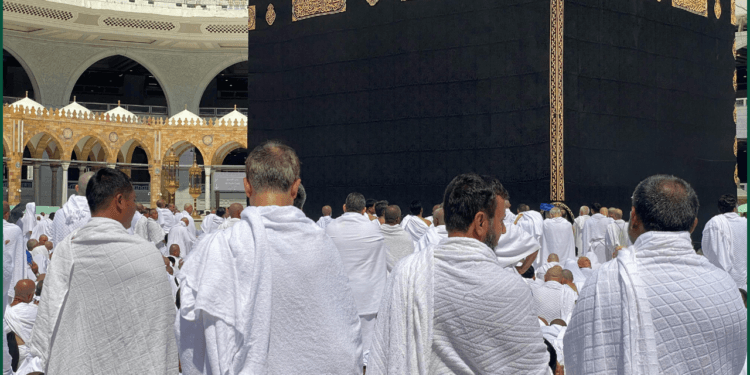Islamabad, April 08, 2025 – Pakistan’s Ministry of Religious Affairs kicked off the second phase of its mandatory Hajj training program on Tuesday, with Religious Affairs Minister Sardar Muhammad Yousaf urging pilgrims to uphold Saudi Arabia’s laws and serve as exemplary representatives of their nation. The training workshop, held in the capital, is part of a broader effort to prepare Pakistani pilgrims for the spiritual journey while ensuring compliance with the Kingdom’s regulations.
Speaking to a gathering of intending pilgrims, Yousaf underscored the dual role they will play during Hajj. “You are not just pilgrims; you are ambassadors of Pakistan,” he said. “Respect the laws of Saudi Arabia and refrain from any actions that could tarnish the image of our country.” His remarks come as Pakistan seeks to strengthen its ties with Saudi Arabia, a key ally and host to millions of Muslims annually for the Hajj pilgrimage.
The second phase of training follows an initial round conducted earlier this year, designed to equip pilgrims with practical knowledge about rituals, safety protocols, and cultural norms in the Kingdom. This year’s program has taken on added significance as Saudi Arabia continues to refine its pilgrimage management systems, earning praise from Yousaf for its “exceptional arrangements.” He described Saudi Arabia as a “brotherly nation” and reassured attendees that Pakistani officials had personally inspected facilities in the Kingdom to guarantee a smooth experience.
Health and safety remain top priorities for both nations. Yousaf announced that mandatory vaccinations for all Pakistani pilgrims are scheduled for April 20, aligning with Saudi Arabia’s stringent public health requirements. The Saudi Ministry of Health mandates the meningitis vaccine for all Hajj attendees, while strongly recommending the seasonal influenza shot. Pilgrims hailing from areas affected by yellow fever or polio must also present valid immunization certificates. These measures aim to safeguard the health of the millions who converge on Mecca each year, making Hajj one of the world’s largest human gatherings.
Approximately 90,000 Pakistanis are expected to participate in this year’s Hajj under the government scheme, which accounts for half of the 179,210-pilgrim quota allocated to Pakistan by Saudi Arabia. The remaining slots are reserved for private operators, offering pilgrims flexibility in their travel arrangements. The government scheme includes subsidized services, such as accommodation and transportation, to ease the financial burden on participants.
Yousaf expressed confidence that the training and preparations would ensure a dignified and spiritually fulfilling journey for all involved. “We have worked closely with Saudi authorities to address every detail,” he said. “Our pilgrims will not face any hardships, God willing.”
As the training progresses, the Ministry of Religious Affairs is also focusing on educating pilgrims about practical matters, such as navigating the holy sites and managing extreme weather conditions. With the Hajj season approaching, Pakistan aims to send a contingent of disciplined and well-prepared individuals to represent the nation on this sacred global stage. For many attendees, the workshop marked a significant step toward fulfilling a lifelong dream, guided by their faith and a renewed sense of national pride.

















































